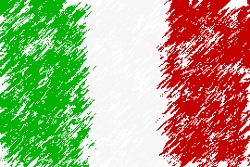As probably you know, the presidential campaign in the US is far from beeing regular according to American democratic standards. It remembers what often happens in Brazil. Specifically, the role played by the media.
Do you remember when, in our last presidential election, a weekly magazine released a feature about the supposed awareness of the Labour candidate about what was going on in the Petrobras?
Now, in the US, the Democratic candidate is accusing the American media of being biased. He has been saying in his rallies that the election is rigged and that the media is producing ‘facts’ against him or his party.
This week, about ten days out from the election, the director of the Federal Bureau of Investigation, acting independently of the Attorney General, had discovered new e-mails that could be potentially relevant in the ongoing investigate process against the Democrat’s candidate.
Do you remember when, at the most critical moment in which the Lower House were judging if they’ll accept or not to open the process that could overthrow the Brazilian Labour Party president, the judge in charge of the “Operação Lava Jato” decided, by himself, disclosure a private (and tapped) conversation between then-President Dilma and the former president (Lula)? Perfect timing, don’t you think?
It’s astonishing to notice that most people don’t care about the truth (especially in an era of ‘opinative journalism’ – I mean, blogs, free comments on the web, and so on). The strategy followed by most candidates or by sectors of the media is disclosure information that can or not be true – similar to a common marketing strategy so-called “weasel” claims. There is no real “truth checker” – because I think that the TV programs attempts to ‘match’ the information that the candidates have provided with the “reality” don’t work (it is fake, actually). Despite that “match” attempt, once told, the words became somehow real. Especially to a large segment of the population so much susceptible to being caught by passion or empty but performative words and apocalyptic scenarios.
However, there are further (and hardly noticed) similarities between these two electoral process. The sharpest one is related to the discourse about immigration in the US election and the “right-left wings” during our last election and especially over the course of the Impeachment undergone for our last President.
Instead of discussing internal or even external current US problems (Medicare, Social Security, the squeeze of the American middle class, social inequality, so on and so forth), the issue of the immigration came to fore. We saw the same in the Brexit rhetoric last June: “We need to take the Country back.”
Fact: the number of immigrants is flattening or even dropping in the US. Even so, there is this idea of building a wall separating the US from the Mexico. Anti-Muslim. They and us (Look this: a woman was attacked in a restaurant in the US because she wasn’t speaking in English but in her native language).
Well, we have long known that sometimes people needs to create enemies to project anything they can’t admit to/in themselves. If the immigrants stop coming, “… we’ll be happier. Our ‘heaven’ must be protected, and we are not willing to share it with you”. The same process is happening right now in Europe, where some countries are refusing to host refugees. I have no idea of the figures, but here in Denmark you barely find someone outside the Nordic ‘visual’ standards. But even a much more mixed country as England was capable of produce a Brexit…
Although we may not have this ‘anti-immigration’ discourse in Brazil (on the contrary – we don’t believe that our country is such a thing as a ‘heaven’ where people would like to move desperately to), we have the same “we-they” mindset. In our case, ‘they’ are all those that supposedly “broken” the country (the “left-wing” supporters). This is the world in which we are living. No matters where you are, the ‘split’ wave is as strong as ever.

